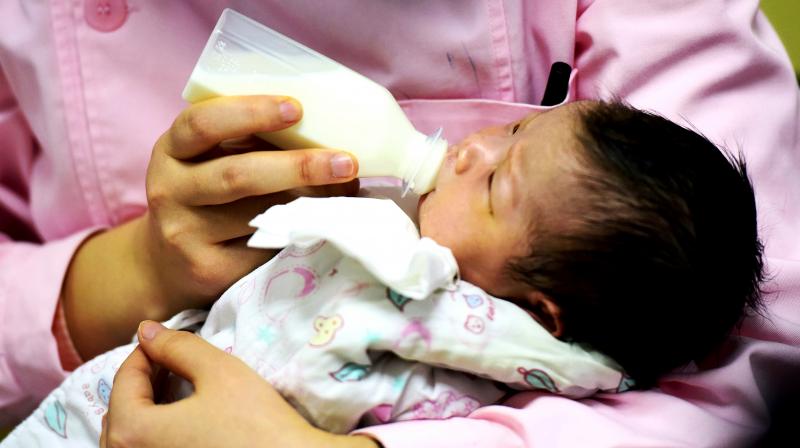China's baby blues
Chinese leaders want couples to have more babies, but local officials resist.

Beijing: Facing a future demographic crisis and aging society, China's leaders are desperately seeking to persuade couples to have more children. But bureaucrats don't seem to have gotten the message, fining a couple in a recent widely publicised case for having a third child against the strict law.
The move has sparked public outrage as people vent their anger at population control officials who are hungry for revenue and have long persecuted couples for violating the now-scrapped "one-child policy."
"The country is doing all it can to encourage childbirth but the local governments need money, so we end up with this sort of madness," a columnist and political commentator who writes under the name Lianpeng said on China's Weibo microblogging service.
"The low birthrate has everyone on edge, yet the local governments care only about collecting fees," journalist Jin Wei wrote on her verified Weibo account. "I don't know of any other nation that pulls its people in different directions like this."
The Wangs, the couple at the heart of the recent controversy, were ordered by local authorities in Shandong province to pay a fine known as a "social maintenance fee" of 64,626 yuan (USD 9,500) immediately after the birth of their third child in January 2017. After various deadlines came and went, the family's entire bank savings of 22,957 yuan (USD 3,400) were frozen last month, with the balance still due.
The situation the couple faces has its roots in decades-old fears that China's population would outstrip its resources, along with the ruling Communist Party's all-consuming fervor to control people's most personal decisions. Family planning regulations emerged in the 1970s, and in 1980 the notorious "one-child policy" came into effect, mandating often brutal punishments for violators ranging from forced abortions and sterilisations to fines and workplace demotions.
Fast-forward 35 years and a radical change of course was ordered after leaders realised an aging population and declining workforce threatened to hamstring the country's future development. In 2016, the one-child policy was officially replaced with a two-child policy and Chinese couples were urged to go forth and multiply within limits.
But the bump in the birth rate was fleeting. Last month, the National Bureau of Statistics said the number of new births in 2018 fell to 15.23 million in a total population of 1.395 billion, a growth rate of .381 per cent and the lowest increase since 1961. China's population is estimated to peak at 1.442 billion in 2029 and then gradually decline, potentially fulfilling the conventional wisdom that China will grow old before it grows rich.
Cases such as the Wangs' remain common, despite a growing recognition of the seriousness of the population crisis, said Yi Fuxian, a professor at the University of Wisconsin Madison and a leading critic of Chinese population policies. Bureaucratic inertia and the desire of local officials to chase revenue contribute to the problem, Yi said.
Yet the one-child policy has weighed down China with the additional burden of distorted attitudes toward the family, society and childbearing, where one or no children have become the norm, Yi said.
With economic growth being the primary guarantor of continued Communist Party rule, the leadership is concerned. The sputtering economy grew at 6.6 per cent last year, its slowest pace in three decades, fuelling fears over the long-term trend of a shrinking pool of workers paying the pensions and health care costs for a ballooning population of retirees.
Even if legal changes do go through, experience in recent years shows that they would still not guarantee more children. Families complain of the soaring costs of housing, education, health care and safe food, an important consideration given China's frequent scandals over food and drug safety.

